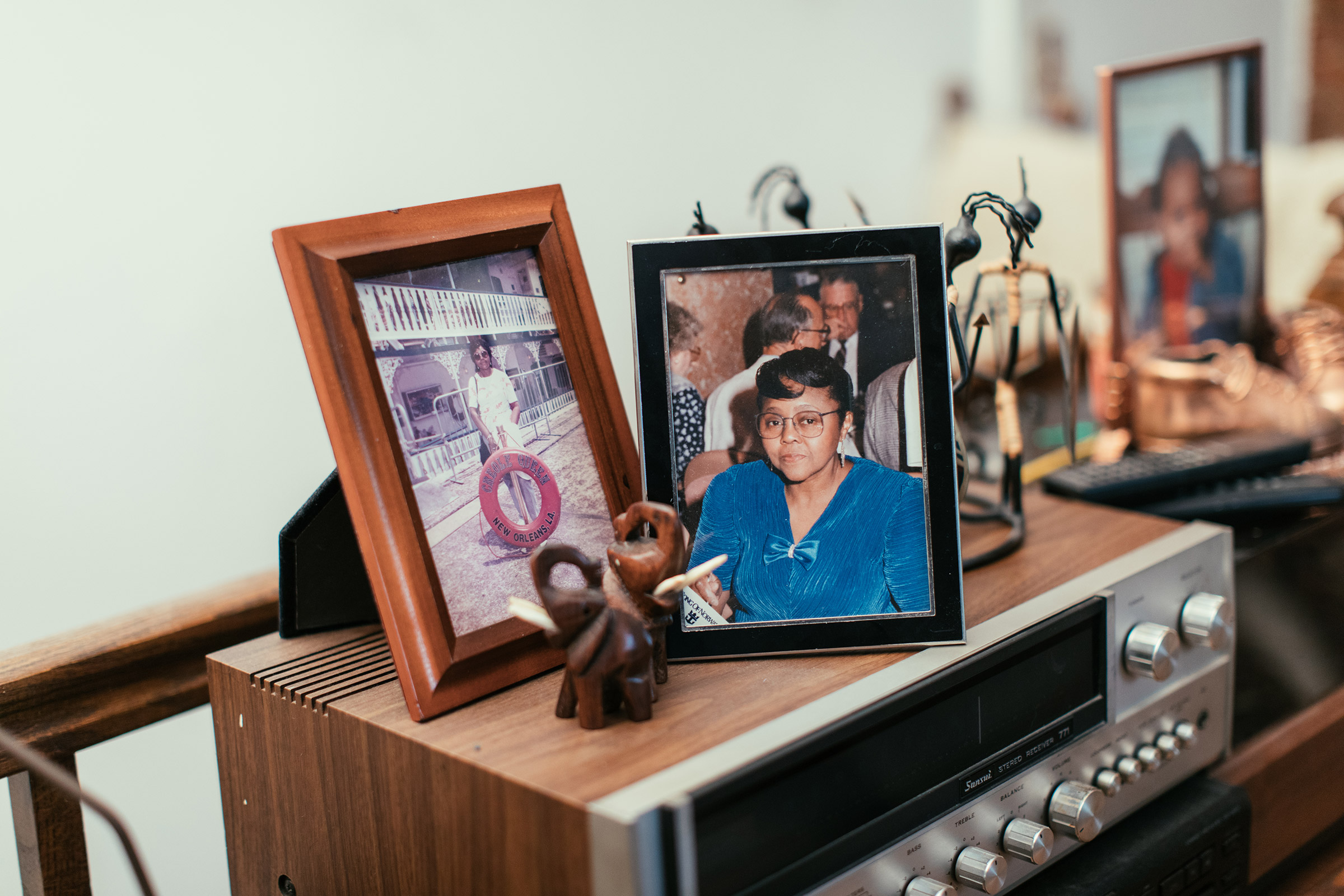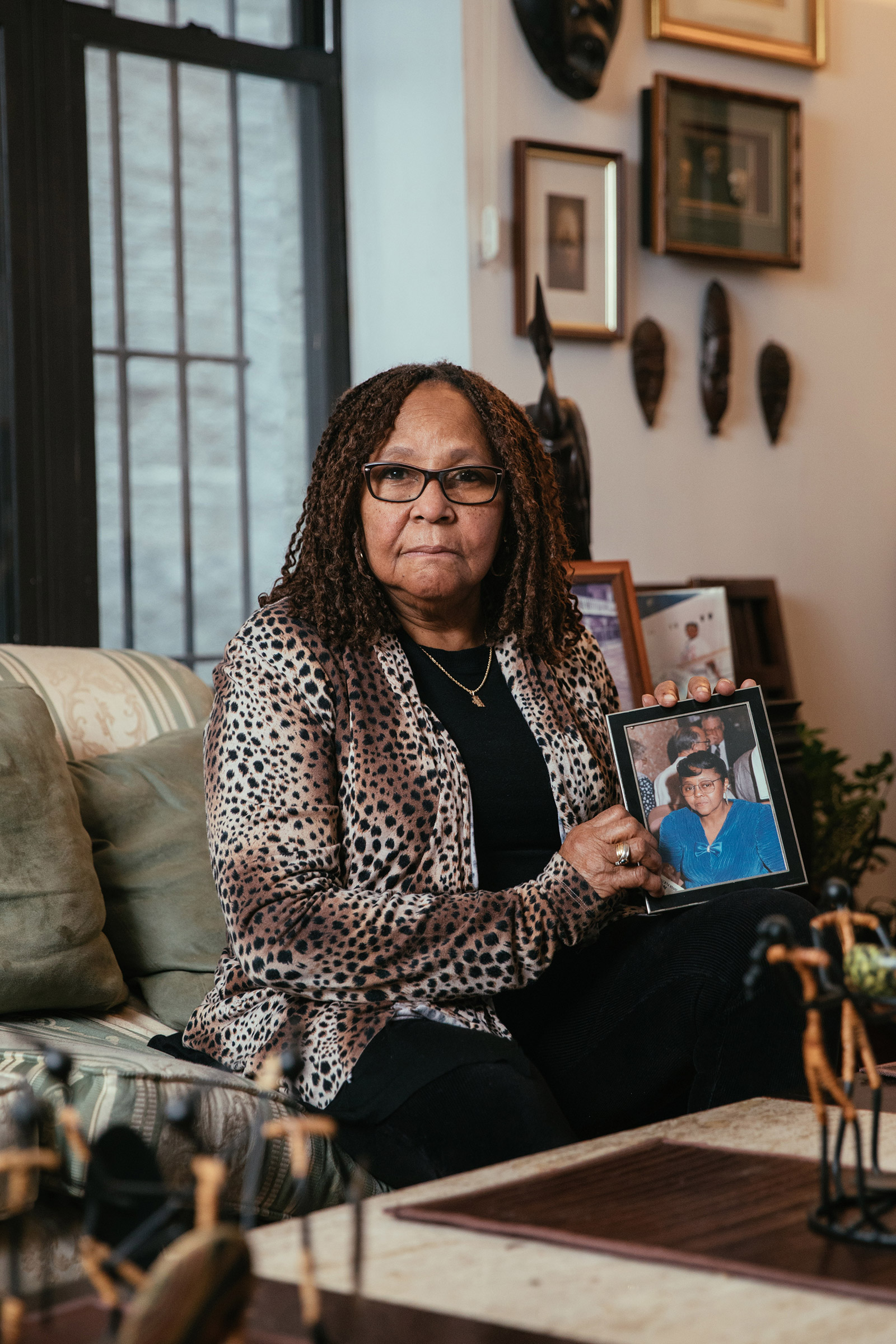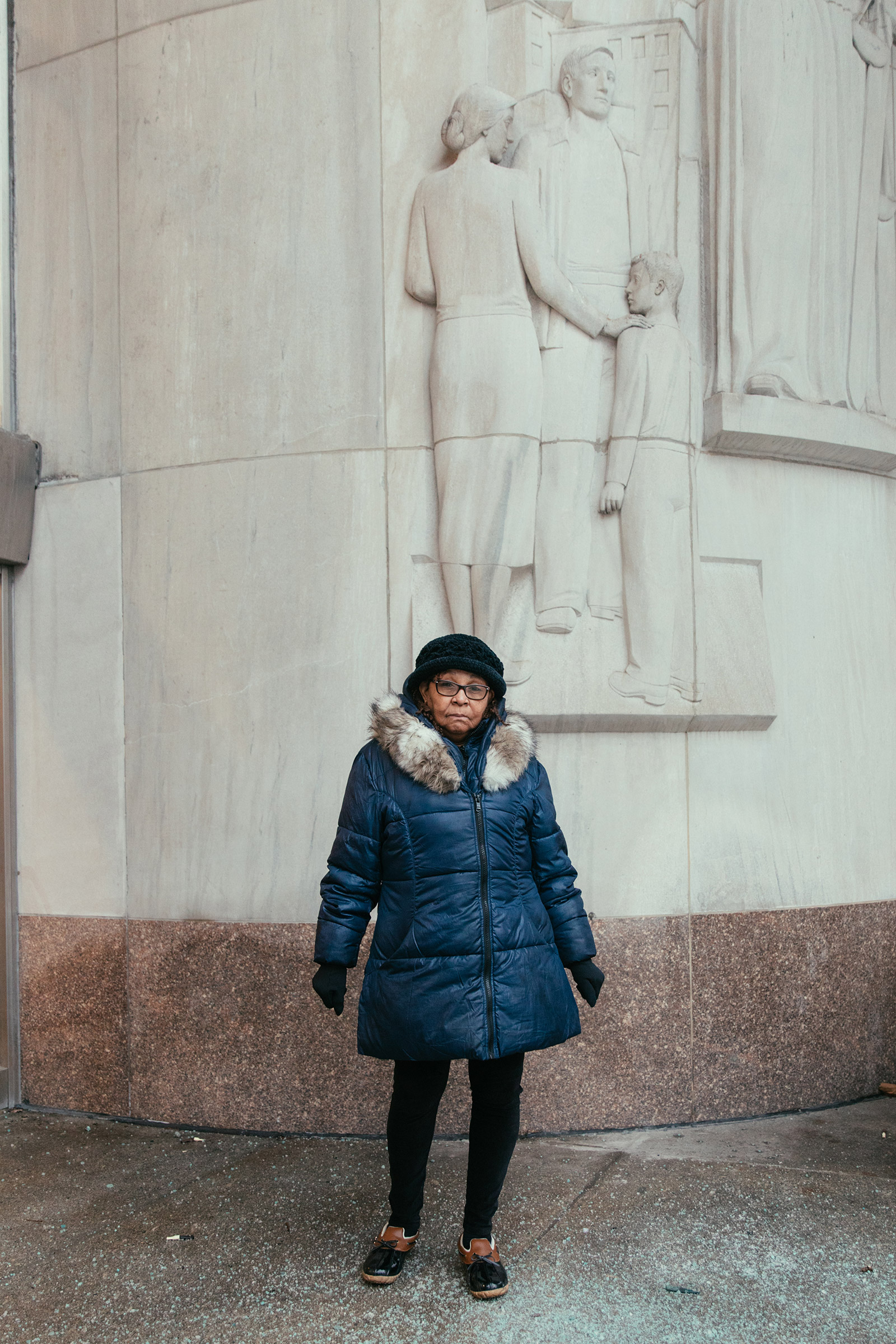On March 28, 2020, Janie Marshall lost her footing and stumbled near another woman while both were being treated for non-COVID-19 ailments at a Brooklyn hospital. With the pandemic raging, an encounter that days earlier might have ended in a friendly apology or a cluck of sympathy quickly turned ugly. Authorities say the other woman, Cassandra Lundy, shoved Marshall, 86, for having “got into [Lundy’s] space” and violating new social-distancing orders aimed at containing the virus. Marshall—who had dementia and was in the hospital for stomach issues—fell to the ground, hit her head and later died.
The city’s medical examiner ruled the death a homicide, and Lundy, now 33, was charged with manslaughter and assault. It was the city’s first homicide associated with COVID-19, and, nearly a year later, one more piece of evidence that the U.S. system of justice can be counted a casualty of the virus. Among its many impacts—none of them good—closed courthouses and canceled jury trials mean neither victims nor defendants, much less their anxious families, can be assured of attending trials in person. And there’s no telling when that will change.
“Every time I think about my aunt, I well up in tears,” says Marshall’s niece, Eleanor Leonard, 74. “I want this over. And I won’t have peace, and I don’t think my aunt has peace in her grave, until this woman is convicted.”

I have no way of making sure she gets justice or is not forgotten.
Since COVID-19 was declared a national emergency in March 2020, every state and Washington, D.C., has canceled or scaled back in-person criminal court proceedings to stem the spread of the virus. The snarled justice system has left hundreds of thousands of families waiting for trials and other resolutions, while creating a cascade of civil rights issues for the accused. More defendants, especially those with health problems, are striking plea deals to avoid sitting in jail for an undetermined amount of time, defense attorneys say. And virtual courts are exposing the disadvantages of the poor, who are less likely to afford Internet access for court dates, as a staggering number of new criminal cases stack up.
New York City alone is bogged down with about 49,000 pending criminal court cases, while Maine has 22,000 pending criminal cases, officials say. Florida’s court system says it needs $12.5 million to crawl out from beneath a mountain of more than 1.1 million stalled cases. California’s courts were recently given $25 million by the state’s Judicial Council to do the same.
The pandemic is exerting a real influence on people's basic rights and dignity and their ability to go free.
In San Antonio, a moratorium on in-person criminal jury trials has extended the pileup of indicted pending felony cases to roughly 9,500—a nearly 67% increase since March 2020, according to Ron Rangel, a criminal district court judge in Bexar County, Texas. There, the family of slain firefighter Scott Deem is growing weary in anticipation of a court date that never seems to come. Deem, 31, died battling an arson fire in a gym on May 18, 2017, authorities say. While a grand jury indicted the gym’s owner, Emond Johnson, on felony murder and arson charges later that year, he has still not faced a jury. “It’s never-ending,” says Deem’s mother Susan Deem.
Deem’s family was hopeful Johnson would be tried in 2020 after a judge in November 2019 rejected a defense motion to move the trial out of the county. “But then the pandemic hit,” Deem’s mother says. With the trial still looming, Susan Deem, 52, says it’s a constant reminder of what was lost when her son died—a loving father, whose third child was born three months after his death, and a courageous public servant. “Every time there is some kind of hearing, it just brings back everything all over again,” she says. “That’s the hard part. I wish it would just get over and done with.”
If the current state of the public-health crisis is any indicator, that may not happen for a long time. In January, COVID-19 killed more people in the U.S. than in any other month so far, and the nation’s death toll stands at more than 500,000, according to data from Johns Hopkins University. In Bexar County, where Johnson’s trial would be held, jury trials have been under an unyielding freeze that will last at least until the end of March 2021. Rangel, who’s tasked with determining whether to lift the moratorium then, says he “currently cannot foresee” doing so.
‘We’re sort of in this holding period.’
The first few courts in the U.S. to stop jury selection and postpone new criminal and civil trials did so around the time of Marshall’s death in March, when health officials began urging millions of Americans to stay at home and keep 6 ft. away from others when venturing out. Even the U.S. Supreme Court postponed oral arguments for the first time in more than 100 years. By fall 2020, some criminal jury trials had resumed with restrictions, including in areas of New York State, where each county was allowed to hold one criminal trial at a time in courtrooms outfitted with plexiglass barriers and jury seats spaced several feet apart. But the reopening was short-lived. A surge in COVID-19 cases around the holidays forced another round of court restrictions. At the end of November, about two dozen U.S. district courts nationwide resuspended jury trials and grand jury proceedings, marking a “significant pause” in efforts by federal courts to resume full operation, court officials said. Today, even in jurisdictions where in-person proceedings have resumed, limits on how many people can be in a courtroom at the same time for things like jury selection continue to slow the system.
“We’re in sort of this holding period,” says Paula Hannaford-Agor, director of the Center for Jury Studies at the National Center for State Courts (NCSC).
Read more: Why the Coronavirus Pandemic Has Caused a Widespread Existential Crisis
In a pre-pandemic world, state courts typically resolved 18 million felony and misdemeanor cases annually, according to an NCSC study in August 2020, and an estimated 8 million to 10 million U.S. citizens reported for jury duty each year. Hannaford-Agor does not see jury trials returning to any semblance of normality until at least 2022. About 45 to 60 people are needed for jury selection in most typical felony cases, she says. More than 600 prospective jurors in Manhattan were summoned for Harvey Weinstein’s high-profile rape trial, which ended in his conviction just before COVID-19 toppled the courts. “Most courts are not set up to be able to have that kind of group size while maintaining social distancing,” Hannaford-Agor says.
“Everybody keeps thinking, Well, we’re kind of getting to the end of this,” she adds. “I don’t think we are.”
With most trial proceedings at a standstill, a host of new problems plague the nation’s criminal-justice system. The longer it takes to bring a case to trial, the greater the chance key witnesses will die or forget details. That happened in Houston, where the arresting officer in a domestic-violence case died before the case went to trial. It has been delayed at least a dozen times in the past 17 months.
How remote courts hurt low-income defendants
There are also long-standing racial inequities underscored by remote courts. With record unemployment rates from the current crisis, low-income, minority defendants have struggled to get access to the Internet or to devices needed for virtual trials, hearings or conversations with attorneys, according to Tina Luongo, attorney-in-charge of the criminal-defense practice at the Legal Aid Society, who’s based in New York City.
“People lost their jobs, they’ve lost their homes,” Luongo says. “The last thing they’re thinking about is, Can I get on Skype or Microsoft Teams?”
Even more alarming to public defenders is how multiple states have suspended laws that set deadlines for prosecutors aimed at protecting defendants’ rights to speedy trials. Multiple defense attorneys say that without that deadline pressure and with no clear end in sight to their cases, more clients are pleading guilty in exchange for time served or probation. “There’s not that light at the end of the tunnel that says, ‘If I can just have my hearing or trial, I’m going to make my case.’” Luongo says. “Imagine what that feels like.”
Plea deals were overwhelmingly common before the pandemic. Of the nearly 80,000 defendants facing federal criminal cases in 2018, about 90% pleaded guilty and 2% went to trial, according to a Pew Research Center analysis of data collected by the federal judiciary. At the state level, jury trials in 2017 accounted for fewer than 3% of criminal dispositions in 22 jurisdictions with available data, the NCSC says. Add the fear of languishing in crowded jails—where prisoners are twice as likely as the general population to die from COVID-19, a recent report found—and the offer of a plea deal looks sweeter even though a criminal conviction can stigmatize someone for life and affect their affect ability to obtain housing, jobs and education. Still, with more than 2,400 COVID-19 deaths behind bars, according to the Marshall Project, immediate concerns about becoming infected may outweigh future repercussions.
Read more: COVID-19 Has Devastated the U.S. Prison and Jail Population
“The impacts on the rest of your life only matter if you’re alive,” says Skailer Qvistgaard, a Massachusetts trial attorney. “It doesn’t matter if you can’t find housing if you died in jail.”
Qvistgaard says one of his immunocompromised clients was ready to challenge his case in court after insisting he had been falsely accused of assault and battery. But after nearly two months sharing a jail cell in a facility with COVID-19 cases, the 39-year-old changed his mind and pleaded guilty in October in exchange for time served. “His goal was to stay alive,” Qvistgaard says. “There was no other way to get him out.”
The Legal Aid Society says a similar situation in New York prompted Michael Hilton, a 64-year-old client, to plead guilty to nonviolent parole violations, including not staying at a court-appointed shelter and missing an appointment with his parole officer. The nonprofit says Hilton, who has a weakened immune system because of HIV, feared exposure to the coronavirus at the shelter. He was unable to let his parole officer know he would miss their meeting because the parole system was in an “exceptional state of disarray during the pandemic,” according to Laura Eraso, a Legal Aid staff attorney. Rather than fight the case and risk more time in jail, Hilton took a plea agreement in October and was released under supervision from Rikers Island.
“The pandemic is exerting a real influence on people’s basic rights and dignity and their ability to go free,” says Nicole Gonzalez Van Cleve, a criminal-justice researcher and Brown University sociology professor. “These aren’t really choices anymore.”

I won't have peace, and I don't think my aunt has peace in her grave, until this woman is convicted.
Cassandra Lundy’s attorney requested that she be freed on bail four times after she was arrested and charged in Janie Marshall’s death in April 2020, prosecutors said, but the court rejected each request to reduce her $200,000 bail. After nearly three months, an appeals court lowered it to $30,000, and Lundy was released on July 15, 2020. At a pretrial conference on Feb. 10, Lundy’s case was adjourned until May. Her attorney and a spokesperson for the Brooklyn Defender Services, which is representing her, did not respond to multiple requests for comment. A phone number listed for Lundy was disconnected, and nobody responded to an email sent to an address listed for her.
Marshall’s great-niece, Antoinette Leonard-Jean Charles, believes the pandemic must have played a role in the court’s decision to free her on bail. “I just thought of the irony of it,” Leonard-Jean Charles says. “She hit my aunt, trying to prevent COVID, and there she was in Rikers surrounded by it.”
When, or if, Lundy stands trial, Marshall’s niece, Eleanor Leonard, hopes to be in the courtroom. “I would just like to face her to see why she would do that to an old lady,” Leonard says. “I just want to be in the courtroom to see if she has anything to say.”
Then, if given the chance, Leonard would want Lundy to hear her. She would explain how in one moment, the family was robbed of a “caring, loving person” who was a role model to her nieces and nephews, and a trailblazer. Marshall was an accountant at the Social Security Administration and the first African American to lead the department in which she worked, her family says. Marshall often regaled relatives with stories about her travels to Africa, and she made family trees and history books so they wouldn’t forget where they came from. “She was a sophisticated, pro-Black woman, who made you proud to be African American,” says Leonard-Jean Charles.
Marshall never married or had children and was private about her personal life, her family says. They thought she was an “old spinster” until they sorted through the possessions in her Brooklyn apartment after she died. In closets full of designer clothing, they found an engagement ring, a wedding dress and two sets of fine china. Leonard-Jean Charles, 41, later learned Marshall’s fiancé had died weeks before they were to marry. “She never told us about her pain, and she obviously carried a lot of pain,” she says.
Leonard-Jean Charles shares stories about Marshall at any opportunity and has been the family’s point person in the court case. But she feels helpless, with nothing to do but wait.
“When the courts are closed, you don’t know when you’re going to be able to do anything,” she says. “I have no way of making sure she gets justice or that she’s not forgotten.”
More Must-Reads From TIME
- The 100 Most Influential People of 2024
- The Revolution of Yulia Navalnaya
- 6 Compliments That Land Every Time
- What's the Deal With the Bitcoin Halving?
- If You're Dating Right Now , You're Brave: Column
- The AI That Could Heal a Divided Internet
- Fallout Is a Brilliant Model for the Future of Video Game Adaptations
- Want Weekly Recs on What to Watch, Read, and More? Sign Up for Worth Your Time
Contact us at letters@time.com
